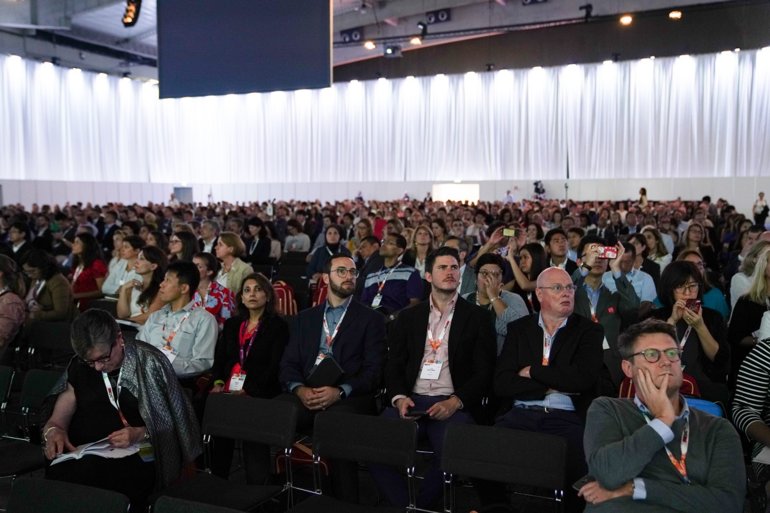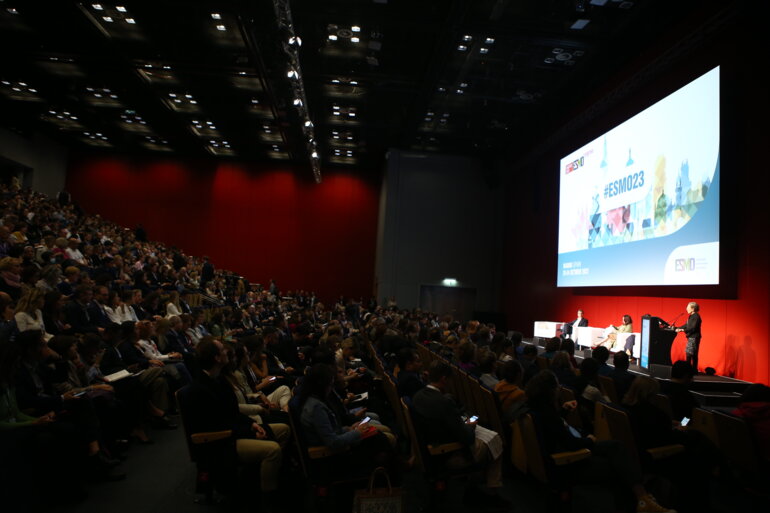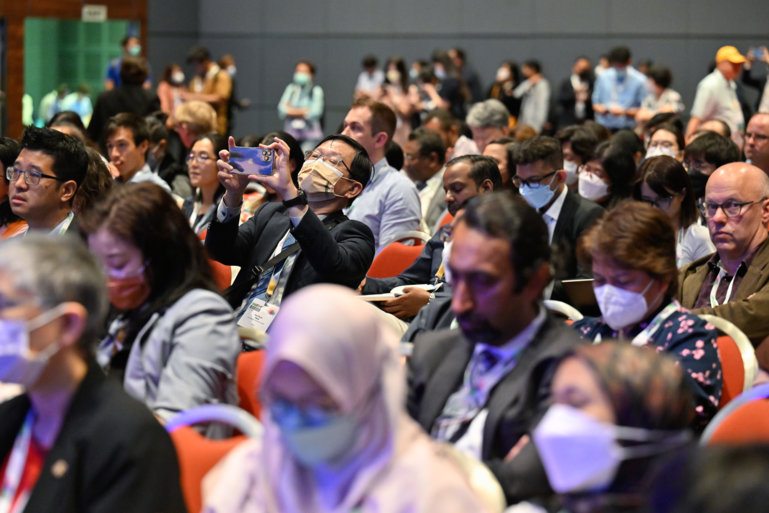Extending an HPV vaccination programme to include boys aged 12–14 years could help reduce the incidence of these infections
While a reduction in cervical cancer rates has been the chief aim of human papillomavirus (HPV) vaccination programmes—which are focused on girls aged 12–14 years—there is a knock-on effect on the prevalence of genital warts, which are mainly caused by HPV types 6 and 11, fuelling the debate around the potential benefits of expanding HPV vaccination programmes to more age and gender groups.
"Extending an HPV vaccination programme to include boys aged 12–14 years could help reduce the incidence of these infections and the healthcare burden associated with treating genital warts, which can be a lengthy process,” explains Prof. Jack Cuzick from Queen Mary University of London, UK, who will give today’s keynote lecture on ‘HPV vaccination for everybody?’ (12.00 – 12.45, Madrid Auditorium [Hall 2]). "We have seen that when we vaccinate teenage girls, especially in regions where vaccine coverage is low, there is ‘herd immunity’ where boys are also protected. Vaccinating boys, as well as providing direct protection to those vaccinated, will help to increase protection for girls by this indirect effect.”
There is evidence that genital warts could be prevented entirely using vaccines incorporating HPV types 6 and 11. "Boys aged 12–14 years are included in the HPV vaccination programmes of only some countries,” continues Cuzick. "In countries with a successful HPV vaccination programme such as the UK, which achieves 80–90% coverage of girls aged 12-14 years, there is evidence showing that persistent HPV infection is reduced and consequently, cervical cancer rates will be much lower than in countries with no or reduced HPV vaccination coverage.”With extended HPV vaccination programmes, some believe that a similar rate of reduction to that expected for cervical cancer might be possible for other cancers linked to HPV infection, such as oropharyngeal cancer.
"It is time to recognise from current data in countries with well-developed cervical screening programmes that oropharyngeal cancer in men is now more common than cervical cancer in women,” warns Cuzick. "Vaccinating school-aged boys could help reduce the burden of HPV-associated oropharyngeal cancers in later life, as these often occur in men in their 50s and 60s. Also, there is an argument that vaccinating men, even over the age of 45 years, may have a preventive effect. However, including men in an HPV vaccination programme, while very promising, still requires further studies of its effectiveness before it can be rolled out in a large scale.
Part of the debate around HPV vaccination programmes is on the possibility to expand vaccination to older women too. Although the vaccine has no therapeutic value for eradicating an HPV type that has already caused infection, there is evidence—from women up to 45 years of age—showing that it does provide protection against infection with a different HPV type. It also appears that vaccination could enhance the immune response to further HPV infection. Cuzick concludes, "There is promising early evidence suggesting that if you have naturally cleared an HPV infection and thus have an antibody response to that HPV type, vaccination appears to boost the immune response against any future infection with this HPV type.”
"The protection of HPV vaccination against persistent infection and precancerous lesions in girls has been widely demonstrated, and the remaining challenge is to ensure that it is universally applied. Vaccination is being extended to boys in many countries, but if we are to accelerate its impact on cancer in both men and women in the near future, vaccination needs to also be offered at older ages.”






